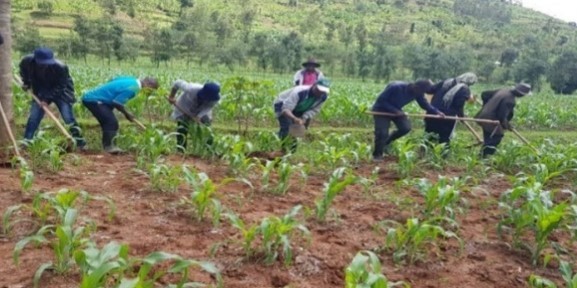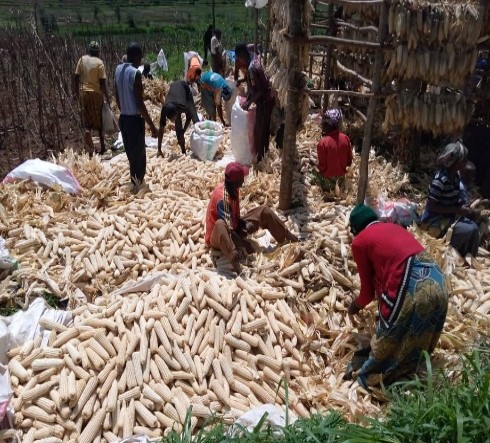Focus on confidence building
27-09-2021Member commitment is one of the main focus points in the SDGP maize project in Rwanda. Through cooperative trainings, advisory and working on good agricultural practices, technical and management knowledge has been improved at 15 maize cooperatives. A total of 257 farmers were directly trained in Farmer Field Schools and an additional 106 trainees received management trainings.
Not getting your money on time, bad bookkeeping at the cooperative, and high prices for supplies are not great motivational arguments to be a member of a cooperative. Many farmers are hesitant in selling their produce to cooperatives and prefer to sell to direct buyers. This means that if cooperatives invest in trust, by showing their added value to the farmers, they invest in long term commitment by farmers. This then results in increased stability of the cooperative and possibilities to expand the business and professionalise.
In the past year, the SDGP maize project, which started in 2019, has done this in several ways. With the investments and effort of the government to improve the sector, Agriterra was able to make some serious changes at the cooperatives.

Trainings & advisory by Agriterra
The focus of most cooperative plans was on maize aggregation, farmer field schools (FFS), establishing cooperative internal procedure manuals, and member mobilization. Trainings varied from technical trainings about maize, to management of agricultural cooperatives, record keeping and female leadership. The goal is that the lead farmers pass on their knowledge to other members of the cooperative. With Agriterra support in FFS training, the yield increased of the 15 cooperatives from 2.5 tons per hectare in 2019 to 4 tons per hectare mid-2021, with 80% reduction of side selling and only 10% was rejected.
Business advisors gave practical tailor-made advice, for example mobilising new members and linking cooperatives with financial institutions. This was done with the help of staff members that the cooperatives were able to hire, who have had a significant impact on the cooperatives the past year. They were able to hire these specialists through the Agriterra program Rural employment project.
Success examples: KODUIBI and COAMANYA Gishubi
One of the cooperatives that showed substantial change during the project was KODUIBI cooperative from Mugesera sector, Ngoma district. After developing an action plan together with Agriterra business advisors and with financial help, KODUIBI decided to hire a cooperative manager. Under his supervision, the cooperative invested in a new business facility. They now have a decent facility to work in, and it is also partly leased by other businesses, which it generates extra income for the cooperative. Next to that, the cooperative was able to mobilize a loan for new business. A huge impact for the cooperative and its members. They are now confident that they are able to keep on paying the new manager’s salary and continue their business activities, when the support of Agriterra stops.
Also COAMANYA Gishubi cooperative has made remarkable progress since June 2020. They hired their first staff member ever: an accountant. In addition to that, and of great convenience to the accountant, they bought a computer to improve the bookkeeping even more. Cooperatives’ success depend greatly on the confidence of their members and good bookkeeping is an important pillar.

Future activities of Rwandan maize cooperatives
COVID-19 restrictions will remain a challenge, but for the rest of 2021 priority activities of the cooperatives include to continue working on good agricultural practices, providing trainings to improve management and services to the members, and last but not least the inclusiveness activities.
